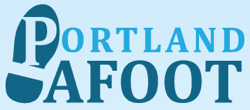 Six exhilarating, nerve-scraping months ago, I left my daily newspaper job to put my livelihood where my mouth is: to build a topical local news service serving riders of public transit in Portland, Oregon.
Six exhilarating, nerve-scraping months ago, I left my daily newspaper job to put my livelihood where my mouth is: to build a topical local news service serving riders of public transit in Portland, Oregon.
In print, Portland Afoot is an image-rich four-page monthly newsmagazine about “low-car life,” distributed by mail to homes and, starting in the next month or two, to workplaces. Online, it’s a heavily reported wiki, with evergreen pages on every bus route, bike law, and commute subsidy in town, among many other things.
Crazy? Obviously. But four months after launch, I’ll tell you this: I’ve never been learning more or learning faster. Now that I’ve become one of the entrepreneurs I’ve covered here at the Lab, Josh has generously invited me to spin out a few of the practical lessons I’ve been spooling up. Let’s start at the beginning.
 You know how one hour of sleep before midnight is worth two hours after midnight? One coffee date before your launch is worth two coffee dates after your launch.
You know how one hour of sleep before midnight is worth two hours after midnight? One coffee date before your launch is worth two coffee dates after your launch.
Maybe it’s because people like to be in the know. Maybe it’s because they’re proud to see their advice shaping your product. Maybe it’s because they have a reflex to root for risk-takers. I don’t know.
Whatever the reason, the earlier people hear about your plan, the more they’ll want to help you. And “people who want to help you” happen to be the things you’re about to need more than anything else in the world.
I thought I was picking a topical niche for the sake of our audience (harried readers without time for irrelevant news) and our sponsors (retailers wanting to target green consumers at the neighborhood level). What I didn’t realize was that I was also opening my arms to a whole universe of private local organizations predisposed to help me succeed.
Portland Afoot needed early subscribers and legitimacy; celebrated local-news blog BikePortland.org ran a positive preview. We’re planning a neighborhood-specific product; the Willamette Pedestrian Coalition, a regional advocacy group, helped me brainstorm the contents. We needed a pilot location for my workplace-distribution scheme; the Swan Island Transportation Management Association, a federally funded traffic-reduction nonprofit, agreed to host it in the industrial area they oversee.
Spare me the warnings about lost independence. Yep, that’s a major risk, and I’m doing my best to deal with it through full disclosure. But it’s a jungle out there and you’re not going to survive without friends. In our case, the whole revenue model depends on print distribution partnerships; entanglements are a fact of life. If your news startup is ever going to get important enough to make enemies, it’ll need to make a few friends first.
 My gut says Justin Timberlake is right: a website with ads is like a great party that has to be over at 11. I’m sure Portland Afoot would have a few more print subscribers, a bit more web traffic, and most importantly a few more superfans if it had launched with zero ads.
My gut says Justin Timberlake is right: a website with ads is like a great party that has to be over at 11. I’m sure Portland Afoot would have a few more print subscribers, a bit more web traffic, and most importantly a few more superfans if it had launched with zero ads.
But this nonprofit business, unlike Facebook, is not headed for an IPO. It’s got about a year to succeed or fail to pay my rent. And though I haven’t yet started selling ads in earnest, I’ve done enough to guarantee that you second ad is easier than your first, and your third ad is easier than your second. Prove to advertisers that your audience has worth by getting some ads on the page.
I hate spam. I hate it so much that when we launched, I promised to ping our mailing list no more than once every three months. It’s a promise I’ve kept — and it was a big mistake.
For people who care about you, regular emails aren’t spam. They are reminders that you exist and are doing wonderful things of which they approve. How do I know? Because nothing — not direct mail, not inbound links, not tables at neighborhood events — drives traffic or action like a mass email to people who’ve opted to receive it. One of my lucky breaks before we launched was that I popped a single box on the site to start building a list of the emails of early visitors. Here’s the PHP script. Steal it.
The weirder your product is — and ours, a heavily reported wiki and four-page monthly magazine, is almost as weird as they come — the more important email, with its universal familiarity, becomes. Email is the U2 of Internet communication — all these years later, it’s the one thing we all still share. Embrace it.
Trust me — you’re going to need the energy.